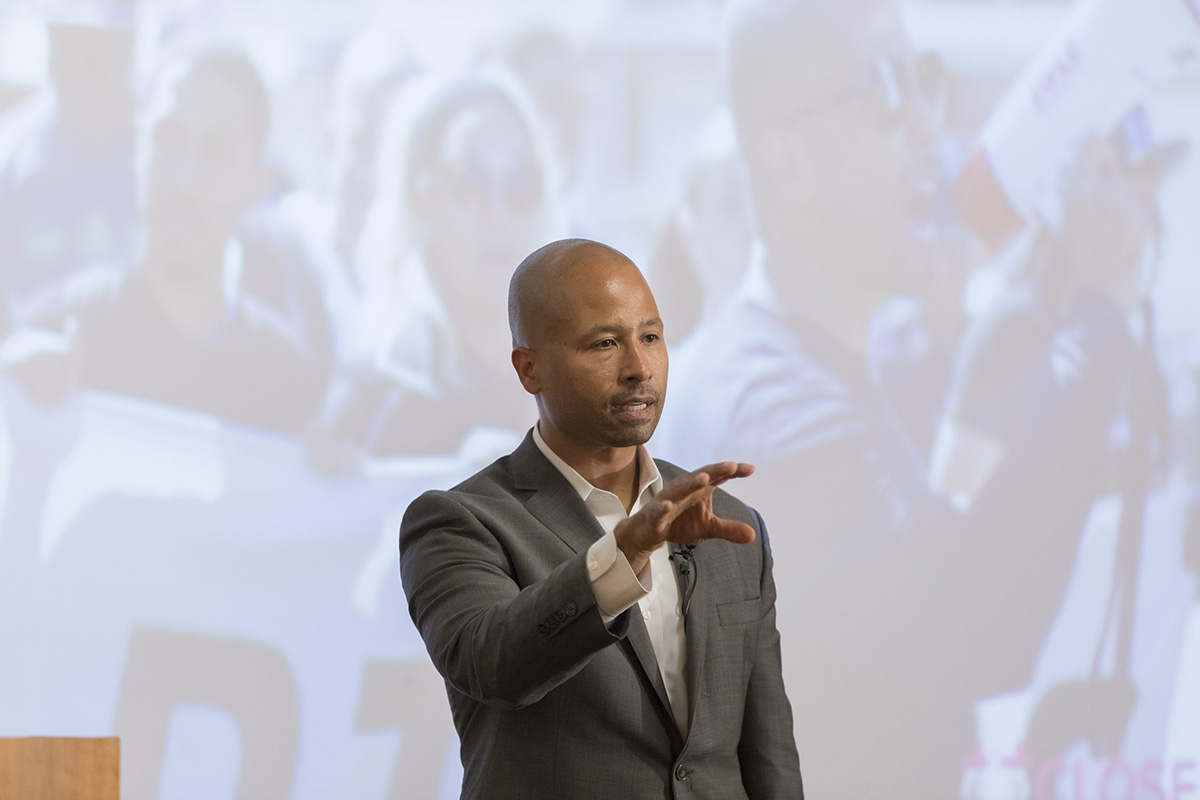Iscol lecturer: U.S. justice has always oppressed minorities
By Shashank Vura

When Glenn E. Martin went to the White House last year along with 40 other experts in the field of criminal justice, his colleagues were all accorded green passes. Martin, a former prison inmate, was given a pink pass reading “needs escort.”
Despite the 21 years that had elapsed since his conviction, Martin said he was held back at one point by a Secret Service agent and prevented from going further.
“This moment speaks to barriers Americans face with turning their lives around,” he said, lamenting the “lack of second chances” in U.S. society. “Every sentence, even one day in jail, is a life sentence,” Martin said, noting the “stigma stays with you forever.”
Martin, founder and president of JustLeadershipUSA (JLUSA), an organization dedicated to cutting the U.S. correctional population in half by 2030. JLUSA empowers people affected by incarceration to drive policy reform. Martin is a national leader and criminal justice reform advocate who spent six years in New York state prisons. He shared his experiences in the Iscol Family Program for Leadership Development in Public Service Lecture, “Mass Incarceration: An Experience Shared by 65 Million Americans,” Sept. 27 on campus. The lecture is hosted annually by the Bronfenbrenner Center for Translational Research in the College of Human Ecology.
“Is mass incarceration an insurmountable problem?” Martin asked the audience. The U.S. has “five percent of the world’s population,” he said, but accounts for “25 percent of the world’s prison population.” More than 2 million Americans languish in prison, Martin said, and 40 percent of the prison population is composed of black people, who make up 14 percent of the U.S. population. Martin attributed this to a “justice system [which] is only the newest iteration of a system of oppression that has existed for hundreds of years” against racial minorities.
He shared the story of one of his current employees, Richard Simpson Bay. After a conviction for attempted murder of a police offer, the illiterate Bay appealed cases for 24 years before a federal court found him not guilty and that the “prosecutor broke rules” and “conjured up his own idea of what happened that night.” During his incarceration, Bay’s 19-year-old son was gunned down by a 14-year-old boy.
Bay became an advocate for his son’s murderer, making that case that he, too, was a “victim, not an offender.” The prosecutor capitulated and the culprit avoided adult prison. Martin said Bay showed “great compassion” and suggested society does not invest the resources necessary to help “high-crime, high incarceration communities high in victimization,” but punishes them instead.
“Everyone has chance to turn around and change their lives, but only if those in position of privilege create a space for that to happen and are willing to invest in people,” Martin said. Only then can we “get rid of a classist, homophobic, racist and xenophobic [criminal justice] system.”
Shashank Vura ’19 is a writer intern for the Cornell Chronicle.
Media Contact
Get Cornell news delivered right to your inbox.
Subscribe